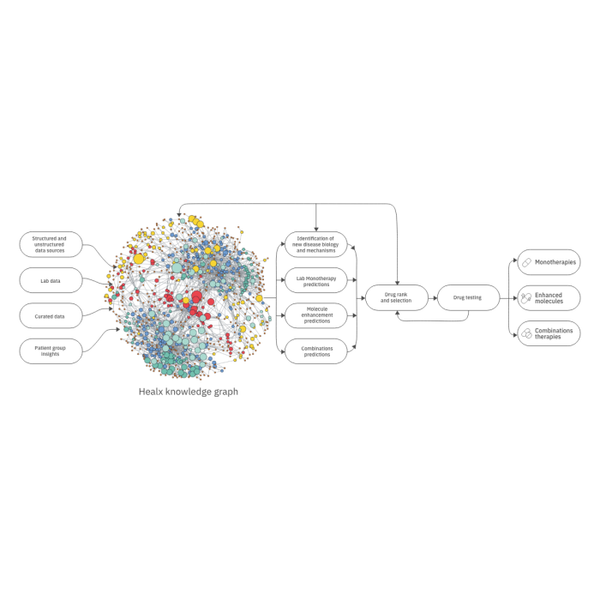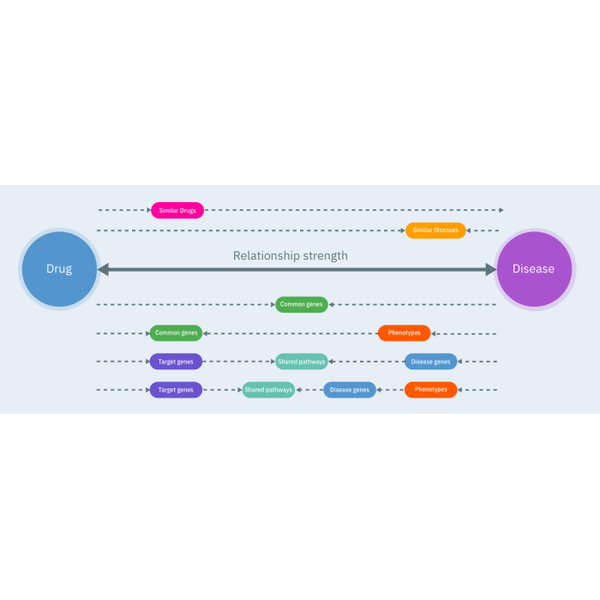

- Home
- Companies
- Healx Ltd.
- News
- AI promises a new future of drug ...
AI promises a new future of drug discovery for rare diseases
Despite affecting over 400 million people around the globe, rare diseases have largely been overlooked by traditional drug discovery methods. This is because traditional model often prioritise disease areas where there is a greater understanding of the basic underlying biology and which, in turn, generally come from the larger patient populations associated with more common diseases. This is part of the reason why 95% of rare conditions lack an approved treatment today. Promisingly though, rare disease companies are working hard to not only pioneer individual therapies for conditions, but actually pioneer entire new approaches to the discovery of therapies for rare diseases. This work has been made easier thanks to landmark legislation like the Orphan Drug Act of 1983, but it’s also been drastically accelerated thanks to the evolution of artificial intelligence (AI). Indeed, new technologies like AI are allowing novel treatments to be designed, developed and delivered more quickly and on a scale never before seen in the industry, thereby offering hope to millions of patients in need and ushering in a new era of drug discovery.
Advances in AI in the last decade have helped improve core processes within the drug discovery and development pipeline at large – from predicting protein structures (Alphafold Protein Structure Database) and discovering new compounds (Atomwise), to monitoring patients during clinical trials (AiCure) and even simulating clinical trials with virtual patients (Novadiscovery).
AI is particularly adept at tackling the conventional challenges of rare disease treatment development. For example, Natural Language Processing (NLP) models can overcome the lack of consolidated knowledge about a rare condition by automatically scanning literature to fill in the gaps with up-to-date data. Machine Learning (ML) algorithms can speed up the drug discovery and development timeline by looking for connections between diseases and the pharmacology of compounds that are already approved for use in another condition, thereby providing valuable insight into targetable mechanisms for diseases that are still poorly understood biologically. And AI can provide the automation and scale needed to provide cost-effective treatments, thereby reducing the cost of R&D for smaller patient populations.
At Healx, we’ve built an AI platform called Healnet to help us find novel connections between known chemical entities (KCEs) and rare diseases, and provide sophisticated recommendations on how to translate those connections into new treatments. This allows us to move therapies to patients more quickly, cost-effectively and scalably. Healnet brings together a highly specialised biomedical knowledge graph of rare disease information with several proprietary AI methods that incorporate a deep understanding of human biology in order to identify novel disease-compound relationships with the highest probability of delivering a positive impact to patients.

Critically, all of Healx’s AI models are trained to discover novel disease biology and multiple modes of action without being limited to a single biological target. These methods take the best from previous generations of drug discovery – combining phenotypic-based, target-based, omic-based and graph-based practices – and the feedback loop of machine learning ensures these models are continuously improving their predictive capabilities with the latest information.
And it works. Healx’s technology has already delivered a 93% success rate across our portfolio, with a 50% individual hit rate for novel drug activity and proof of mechanism validation, as well as the identification of over 50 novel mechanisms of action. We also recently received approval from the US Food and Drug Administration (FDA) for a Phase 2 clinical study of drugs predicted by our AI models to treat fragile X syndrome, the leading genetic cause of learning difficulties in the world.
But it’s not time to hang up your lab coats yet. Yes, knowledge graphs and algorithms are great for finding novel connections because they can operate from a hypothesis-free standpoint in a way that humans cannot. And yes, they’re also able to scan huge libraries of information rapidly and on a scale humans could only dream of.
But some of the suggestions our models make might not always make sense. That’s where experts have an important role to play. These unanticipated connections can be presented to pharmacologists and chemists, who can then use their own experience to work out whether those predictions make sense.
This, however, is reliant on the understandability of algorithms and their outputs. At Healx, we’re developing tools that produce evidence chains from our predictions, which will explain why it believes that a specific drug may treat a specific disease.

This interpretation can’t be done by just anyone. Pharmacologists, clinical specialists and computer scientists are critical in interpreting the data. This new approach to drug discovery might be AI-led, but it’s important to stress it’s still humans who are holding the reins.
What makes the AI approach so fascinating is that as computing power and improvements to data quality are made, we can scale it up rapidly. The solutions will come faster and faster as we become able to automate more of the process and run more of it in parallel, with expert humans placed along the chain, at decision points where they can provide maximum impact.
It’s not hard to imagine a near-future where we’re able to discover potential treatments for whole groups of conditions at once, guided by both technological and human insight. Suddenly, no disease, however rare, need be overlooked, no question about biology left unanswered. But this can only happen if regulation and policy keeps up with the pace of innovation to allow these new developments to flourish.

